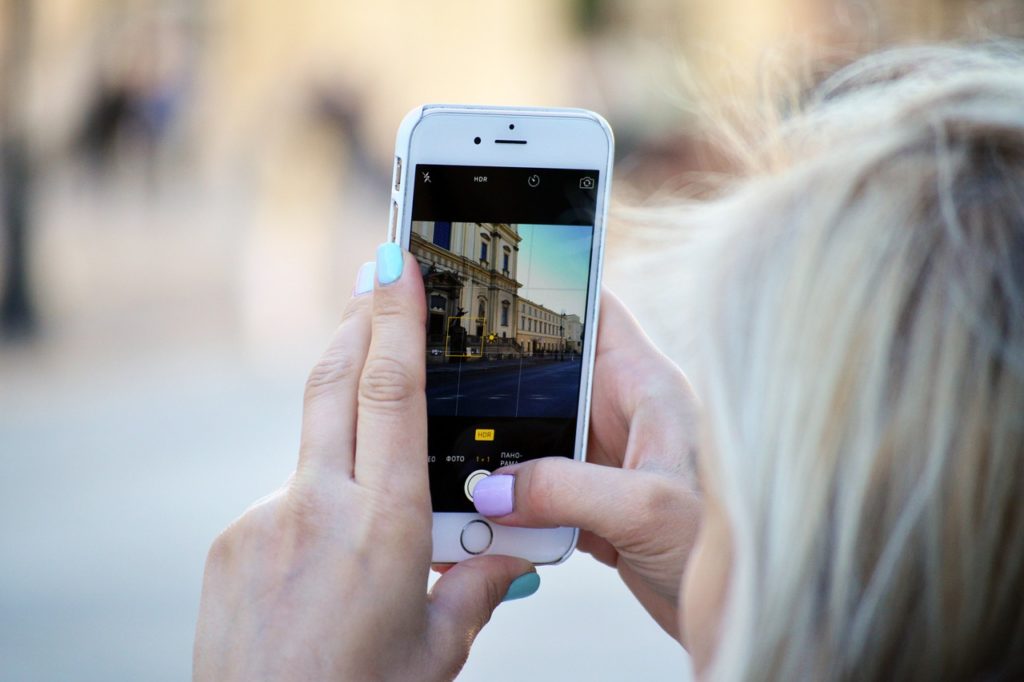- Calls to this hotline are currently being directed to Within Health, Fay or Eating Disorder Solutions
- Representatives are standing by 24/7 to help answer your questions
- All calls are confidential and HIPAA compliant
- There is no obligation or cost to call
- Eating Disorder Hope does not receive any commissions or fees dependent upon which provider you select
- Additional treatment providers are located on our directory or samhsa.gov
Social Media Platforms That Support Recovery

Contributor: Crystal Karges, MS, RDN, IBCLC, Director of Content and Social Media at Eating Disorder Hope/Addiction Hope
In the United States in 2016, an estimated 185 million individuals are utilizing social media platforms of some sort. This number is forecasted to exceed 200 million by the year 2020 [1]. Without even looking at the numbers, it is easy to see how social media use has infiltrated our lives as a society.
Everywhere you look, people seem to be engrossed in their phones rather than their surroundings, and is common for individuals to have more than social media platform app on their smartphones, tablets, etc.
Approaching Social Media in Eating Disorder Recovery
For a person who is in recovery from an eating disorder, social media platforms must be approached delicately. Social media is saturated with trends that support dieting, poor body image, and frankly, many behaviors that are not supportive to eating disorder recovery. Recovery is something that must be protected and proactively supported in order to maintain for the long term. With individuals spending a considerable amount of their time each day on social media, it is important to be mindful of how this time is being spent.
Social media can be a power that is used for good by choosing to engage in a positive and uplifting way that supports recovery efforts. Many individuals and organizations have started platforms that support principles conducive to eating disorder recovery, including health at every size, body positivity, mindful/intuitive eating and more. It is a matter of purposefully finding these platforms and curating a feed that leaves you uplifted rather than discouraged.
Knowing Where to Start
 If you are hoping to revamp your approach to social media to better support your recovery, consider doing a “spring cleaning” of your platforms. Take the time to go through your feed and identify people and organizations you follow that may or may not support your efforts. Remove or block those things that are a negative influence, and take the time to search out the people and organizations that will be an encouragement and support to your recovery efforts.
If you are hoping to revamp your approach to social media to better support your recovery, consider doing a “spring cleaning” of your platforms. Take the time to go through your feed and identify people and organizations you follow that may or may not support your efforts. Remove or block those things that are a negative influence, and take the time to search out the people and organizations that will be an encouragement and support to your recovery efforts.
Countless eating disorder organizations have positive social media channels. You might want to start with the National Eating Disorder Association, Project Heal, the Academy for Eating Disorders, the Multi-Service Eating Disorder Association, the Eating Disorder Coalition and more.
You are in control of your time on social media and how you engage in these platforms. Use your social media as a tool for positivity by proactively choosing how you spend your time!
Community Discussion – Share your thoughts here!
What are positive platforms you follow on social media?
 About the Author: Crystal is a Masters-level Registered Dietitian Nutritionist (RDN) with a specialty focus in eating disorders, maternal/child health and wellness, and intuitive eating. Combining clinical experience with a love of social media and writing, Crystal serves as the Special Projects Coordinator for Eating Disorder Hope/Addiction Hope, where her passion to help others find recovery and healing is integrated into each part of her work.
About the Author: Crystal is a Masters-level Registered Dietitian Nutritionist (RDN) with a specialty focus in eating disorders, maternal/child health and wellness, and intuitive eating. Combining clinical experience with a love of social media and writing, Crystal serves as the Special Projects Coordinator for Eating Disorder Hope/Addiction Hope, where her passion to help others find recovery and healing is integrated into each part of her work.
As a Certified Intuitive Eating Counselor, Crystal has dedicated her career to helping others establish a healthy relationship with food and body through her work with EDH/AH and nutrition private practice.
References:
[1]: The Statistics Portal, “Percentage of US Population With a Social Media Profile from 2008 to 2016”, https://www.statista.com/statistics/273476/percentage-of-us-population-with-a-social-network-profile/The opinions and views of our guest contributors are shared to provide a broad perspective of eating disorders. These are not necessarily the views of Eating Disorder Hope, but an effort to offer discussion of various issues by different concerned individuals.
We at Eating Disorder Hope understand that eating disorders result from a combination of environmental and genetic factors. If you or a loved one are suffering from an eating disorder, please know that there is hope for you, and seek immediate professional help.
Last Updated & Reviewed By: Jacquelyn Ekern, MS, LPC on October 2, 2016
Published on EatingDisorderHope.com

The EatingDisorderHope.com editorial team comprises experienced writers, editors, and medical reviewers specializing in eating disorders, treatment, and mental and behavioral health.

